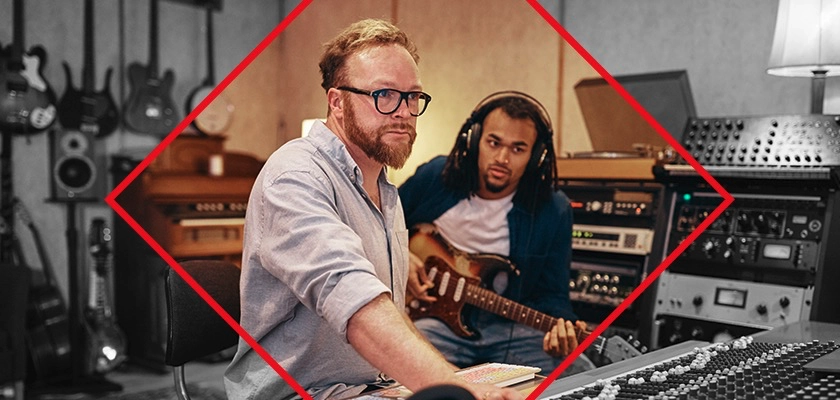Cooperation vs. Competition in the Music Industry
It may seem counterintuitive to reach out to other businesses in the industry when looking to promote your events and ideas. But collaboration brings a new audience and new ways to measure success.

When I started my own music business, the South Florida Chamber Ensemble (SFCE), 11 years ago, the climate for arts organizations was not collaborative. I recall an interesting conversation with one of my musicians when I suggested we share our ideas with a competing ensemble. She was shocked that I would even consider it. However, the climate for cooperation has changed. For arts organizations to thrive in this country and beyond, we have to collaborate, and those collaborations need to be meaningful and beneficial for all parties.
Collaborations are all the rage in more popular music. Almost every Latin singer that I love has collaborated with someone, even during the pandemic. But we are not seeing that level of collaboration in classical music, even though there is historical precedent. Romantic era composer Franz Liszt was always helping colleagues get their music performed, even conducting it himself. Cross collaborations in the Romantic era were even more common. Writers would team up with composers to set their poems to music and would collaborate to promote each other’s works at the performances and beyond. Opera is the ultimate cross-collaboration, including writers, librettists, composers, musicians, dancers, singers, and costume and stage designers.
How to Get Started
When looking for your first collab, reach out to an organization that has something you want in your organization and that can benefit from something you have. This is the tricky part. I will share with you one amazing collaboration that was beneficial to both sides.
The SFCE is an all-female ensemble, and while this happened organically, it was based on issues of sexual harassment in the music business. As we began looking for our first international tour, we kept coming across other all-female ensembles that were mostly playing music by female composers. We do not restrict ourselves to the music of women; rather, we try to have a diverse mix of composers in our programs. We started sending DMs to these ensembles on Twitter and opened a conversation.
As our tour plans began to take shape, centered around a performance at a festival in Belgium, we reached out to those all-female ensembles in the surrounding areas and added three performances in London with some of them. We collaborated on the music program, deciding to go with a program of all female composers. The ensembles we collaborated with helped us find venues for rehearsals and performances and provided us with some equipment, and we found funding to cover some of their costs. They helped us find a place to stay in London, and we brought in Water Aid UK as an additional partner because our program focused on climate change. We introduced them to Age UK, an organization dedicated to older adults.
Best of all, we rehearsed together, shared stories of our experiences as women in the business, and made music together. It was the ideal collaboration—and it is ongoing. We had planned to bring them to the United States in April 2021 for a joint concert, but the pandemic made that impossible. We have continued sharing ideas and music and opened the conversation about chamber music and all-female ensembles to other groups. We are crossing our fingers that they will be able to come to perform with us here soon. When I need a piece of music or, for example, a female composer from Ireland, I reach out to them, and we cross-promote each other’s concerts, even from across the pond. You can do this, too!
The first thing to remember is that while it may seem like you are competing with every other similar musical organization, the truth is that we are all slightly different. There is room in this world for all of us to succeed and for all of us to carve out our own little niche. I am happy to share my ideas and even my content because if someone can take my content and do it better, it means that I am not doing my job and that I have to step up my game.
A good place to start is with an organization that shares your mission but not your art form. This enables you to get your feet wet without the worry of losing work. This is what we did by contacting Water Aid UK. We found an organization that met our mission goal of slowing climate change. It was a simple cold email to someone at the organization with a request for materials to distribute at our concert at Age UK to promote their ideas to older adults. They ended up sending a box of reading material, balloons, and reusable items to the center and helped us promote the concert. We went back to them when we wanted to commission a piece of music for our Pied Pipers of Clean Water concert here in the United States. They allowed us to use one of their videos, and we had a London-based composer write a musical score that we performed live. And at the concert, we had a fundraiser to raise money for Water Aid. You never know who will say yes and where that original collaboration will lead. Our successful collaboration with Water Aid UK began with a simple email to the director of outreach after doing a search on their website!
Questions for Discussion
- What non-musical businesses share at least part of your mission?
- What can you offer that non-musical business in a collaboration?
- What are you hoping to get from that non-musical business in a potential collaboration?
- How and/or who can you contact in that non-musical business?




